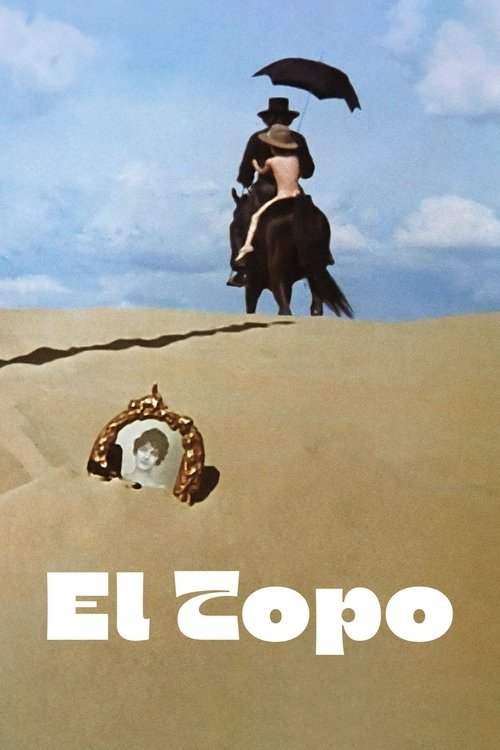
Title: El Topo
Year: 1970
Director: Alejandro Jodorowsky
Writer: Alejandro Jodorowsky
Cast: Alejandro Jodorowsky (El Topo),
Brontis Jodorowsky (Son of El Topo),
José Legarreta (Dying Man),
Alfonso Arau (Bandit 1),
José Luis Fernández (Bandit 2),
Runtime: 125 min.
Synopsis: El Topo decides to confront warrior Masters on a trans-formative desert journey he begins with his 6 year old son, who must bury his childhood totems to become a man.
Rating: 7.1/10
The Desert Mirage of Enlightenment: Decoding El Topo’s Cinematic Fever Dream
/10
Posted on July 14, 2025
Alejandro Jodorowsky’s El Topo (1970) is a cinematic labyrinth, a surreal odyssey that burrows into the psyche like a desert wind carving through stone. This Mexican avant-garde western, directed with audacious fervor, is less a film than a ritual, blending mysticism, violence, and existential inquiry. Its most striking elements cinematography, direction, and symbolism create a tapestry that is both mesmerizing and disorienting, demanding viewers surrender to its enigmatic currents.
Jodorowsky’s direction is the film’s pulsating heart. He wields the camera like a shaman, conjuring a world where archetypes and allegories collide. The narrative, following the titular gunslinger (played by Jodorowsky himself) on a quest for spiritual transcendence, defies linear storytelling. Instead, it unfolds as a series of tableaux, each saturated with esoteric imagery crucifixes, severed limbs, and bleeding landscapes. This approach, while bold, occasionally stumbles; the film’s second half, with its shift to a crippled community, feels less cohesive, as if Jodorowsky’s vision outpaces his narrative discipline. Yet, this very chaos fuels the film’s hypnotic pull, inviting endless interpretation.
The cinematography, crafted by Rafael Corkidi, is a triumph of visual poetry. The stark Mexican desert becomes a character, its endless dunes and cracked earth mirroring El Topo’s inner desolation. Corkidi’s use of high-contrast lighting and vivid color palettes blood reds, sun-bleached golds amplifies the film’s mythic tone. Scenes like the duel with the flute-playing monk linger in the mind, their compositions evoking both reverence and dread. However, the handheld camera work, while immersive, can feel jarring, occasionally undermining the film’s deliberate pacing.
Symbolism is El Topo’s lifeblood, but it’s also its Achilles’ heel. Jodorowsky layers the film with references to Tarot, Kabbalah, and Zen, creating a dense allegorical web. While this enriches the experience for those willing to unpack it, it risks alienating viewers unprepared for its intellectual demands. The acting, particularly Jodorowsky’s own, is raw and intense but lacks nuance, serving the film’s mythic structure more than emotional depth. Still, the visceral commitment of the cast, combined with the haunting, minimalist score, anchors the film’s otherworldly atmosphere.
El Topo is not flawless its ambition sometimes outstrips its clarity but its fearless exploration of the human soul’s shadows makes it a singular work. It challenges, provokes, and lingers, a cinematic riddle etched in sand.
0
0
